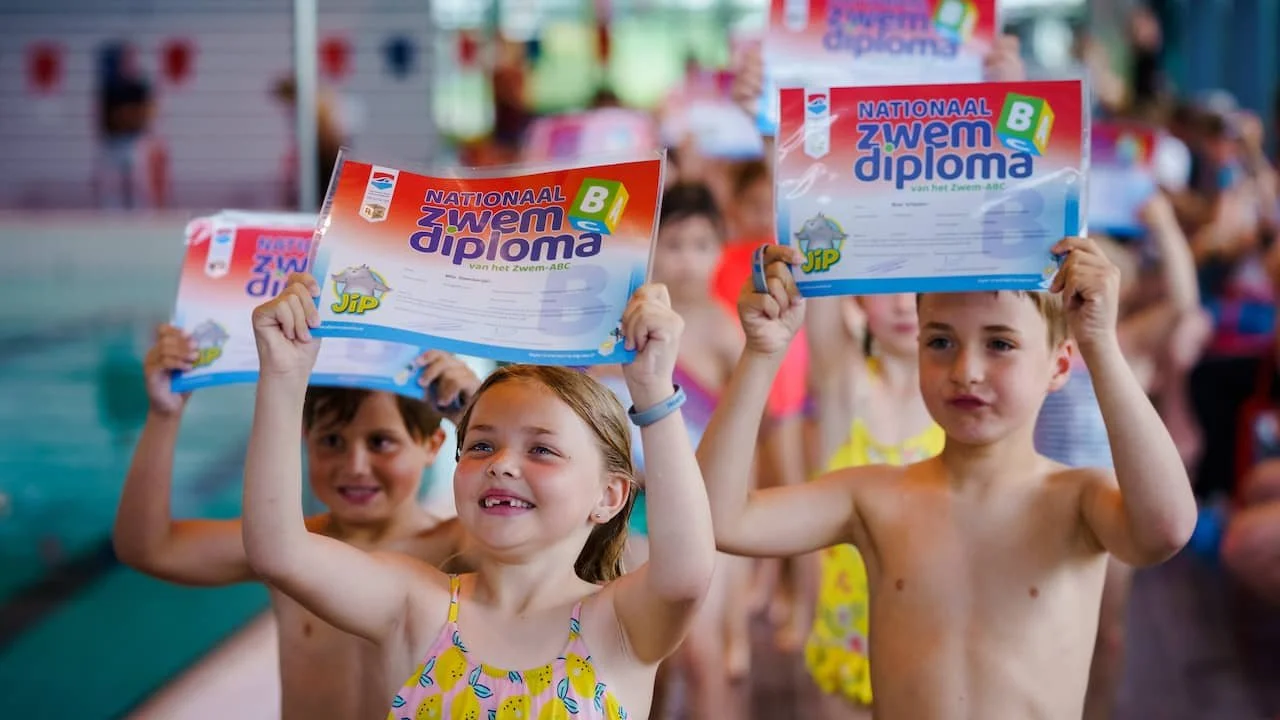Expat Chronicles: School for Language Transition
Moving overseas is always challenging, but moving overseas with three children is a truly complicated matter. Top on our list of concerns, as we made plans, was where our children would attend school. We hoped our move was permanent, so it was in their best interest to integrate into regular schools, speaking the native language. But how to make that monumental transition?
Lucky for us all, The Netherlands has a plan for that. In fact, it is one of the few countries worldwide to have a comprehensive program for teaching the native language to immigrant children (see OECD report). Rather than being thrown into regular Dutch-speaking public schools to sink or swim, Aria and Liam were enrolled at the ISK (International Transition Class).
“The ISK offers education to students between the ages of 12 and 18 years old who have little or no knowledge of the Dutch language. Their program is focused in learning the Dutch language and integrating into the Dutch society, but students also follow mathematics, English, biology, care, physical development, visual arts and drama courses.”
September of 2019, Aria (then 14) and Liam (then 12) started at the ISK, a publicly-funded program. The goal? To learn Dutch well enough to transition to regular Dutch schools at the level appropriate to their overall cognitive abilities.
This is no small thing. The Netherlands offers many types of secondary schools, which are designed to suit different groups. These school types have different destinations, such as vocational programs, college or university. Naturally, a much higher mastery of Dutch is required to transition to the type of secondary school that leads to university. I wondered, was the ISK truly prepared to cater to such diverse needs?
Aria and Liam began in the same class, with 15 or so students who had recently arrived in The Netherlands. The kids pretty quickly grouped themselves by native languages, with English-speaking children and Arabic-speaking children being the largest groups. In class the teacher spoke Dutch slowly, using lots of gestures. If most of the children were confused, he or she would use English briefly, before switching back to Dutch. It was learning by immersion. The advantage is that everyone was fairly new to the language, creating a safe environment for language risk-taking.
The initial phase at the ISK is all about getting to know the students. After just one month, the students were sorted into three groups: fast learners, medium learners and slow learners. Aria and Liam were both slated “fast learners.”
At that time the class was split up and reorganized, a pattern that would continue in the ISK. They often move children to keep those with similar language-levels working together. It’s very efficient. Meanwhile, each student is followed by a mentor, a teacher who keeps track of the child’s progress, makes placement recommendations and keeps child and parent informed.
Children like Aria and Liam, of secondary school age, typically require two years in the ISK program. When they enter regular Dutch schools, they are often placed with slightly younger children and thus their total schooling may be extended by 2 or so years.
At her very first meeting with her mentor, Aria shared that she wanted to complete the ISK program in 1 year. She’s an extremely quick learner and studies extensively at home, so we also felt this was a reasonable goal. Luckily, the mentor agreed to let her try. By October Aria joined a class of students who had been in ISK for about a year. Aria’s Dutch level was just A1 (see here for level definitions) and the class was working at A2. It was definitely a struggle at first, but at the end of November she tested at B1 is most levels. Aria feels she was able to make this huge advancement because she was immersed in a challenging environment.
Meanwhile, Liam was happy to proceed at a regular pace. His class focused on basic vocabulary and grammar. He rarely had homework, and didn’t seem stressed at all by the process. This was a relief to me, because he had not been enthusiastic about learning a new language. By November he was testing A1.
I would say that everything was going along swimmingly for us with the ISK until Aria got those B1 test results in November. Many students leave the ISK when they reach B1 level, but Aria was not given that recommendation. They said she needed to improve her grammar. Aria was super frustrated. She felt bored in class, that the teachers were speaking unnaturally slow and that should could make better progress in a regular Dutch class.
At the meeting to discuss this, Aria’s mentor said that she didn’t know if Aria would ultimately be bound for university (theoretical higher education) or college (a more practical-level of higher education). This really astounded me, given her amazing speed in acquiring Dutch. Why would they doubt her academic abilities? I shared Aria’s SAT scores and AP Biology credit earned in the United States as an 8th grader, but that didn’t seem to translate. The mentor even confessed that in all her time with the ISK she had only once ever seen a child learn Dutch this fast. I wondered if they never really sent ISK kids to university-bound secondary schools (VWO) after all.
Well, the mentor stuck to her convictions, and Aria remained in the ISK. We bought her a Dutch grammar book, which she poured over during winter break to bring her up to the level of her classmates. In the new year, she continually requested harder books in all of her ISK classes, to the point that she is no longer doing the same textbooks as any of the other students, and always receiving excellent grades.
The ISK runs official tests to evaluate student’s language progress in reading, speaking, listening and eventually in writing as well. They test 4 times a year, with the most recent tests run in February. Liam tested mostly A2, making steady and healthy progress. His mentor mentioned he might not need the full 2 years to complete the program.
In February, Aria tested B1 and B2. Wowzers!
And, can you believe, they still won’t let her leave the program? I have to admit, I’ve wondered if they just can’t accept a child completing ISK in less than one year. It is hard for us, a former-homeschooling family, to accept the authority of the administrators; but, I think this would be the case anywhere! From our perspective, the ISK seems more focused on making sure that kids don’t fail than on making sure they reach their highest potential. Both are important goals, but with my own kids I gravitate toward the latter.
Fortunately, there is progress - the ISK has given an official recommendation that she attend VWO secondary school (the university-bound type) as of the new school year (September). Aria had a hard time accepting the wait, but she is glad to be headed to VWO at least.
At our last meeting with the mentor, I felt like we were finally working on the same team. Aria set out the goal that she enter VWO 4th year in September (kids her age) instead of VWO 3rd year (as recommended). Instead of telling her it wasn’t possible, the mentor offered clear guidelines on what Aria would have to accomplish to meet this goal.
Yes, exactly! Now, if Aria doesn't meet those criteria, she will know why she is going to 3rd year, instead of 4th year. This is how to work with children with academic ambition, in my opinion. Let them reach as high as they dare so that they can discover their own limits.
Where does that leave us? Grateful.
The ISK has been such a blessing to us. We didn’t have the funds to put our kids in English-speaking international school and, more than that, we deeply desired that they learn the native language of our new home. Thanks to The Netherlands’ generous program for assimilating immigrant children, Aria and Liam have the chance to really learning Dutch in a non-threatening environment.
The Netherlands invests resources in creating such a program, of course. But as a result they unlock the potential of these young people to really thrive in their land and be educated to their fullest potential. I believe that in the end society benefits. Children that really learn to speak Dutch will assimilate so much easier and go on to be better contributors in the work force. I bet they are also more likely to stay in the land that educated them, as they don’t feel so much like outsiders.
Last week Liam had a test on the provinces and major cities in The Netherlands. I think he’s lucky. They’re filling in the gaps, as best as possible, to make him a fully functional Dutch student.
Do you know what he wants to be someday? A Dutch citizen.















